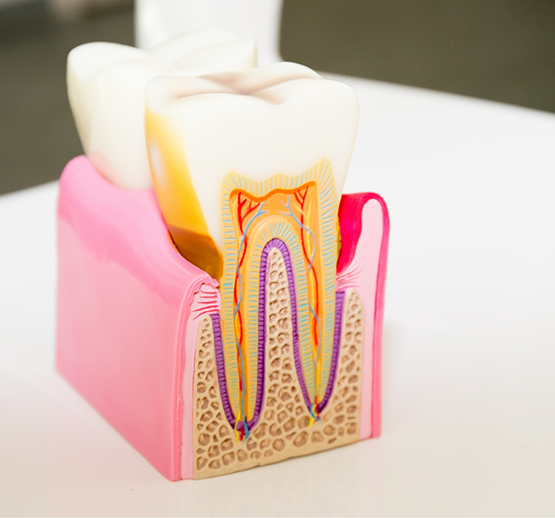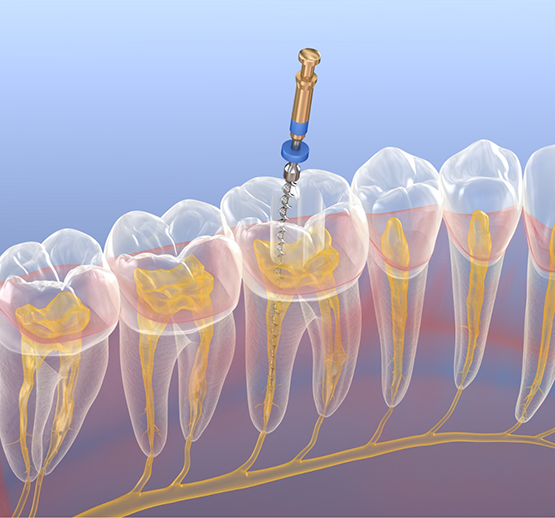Root Canal Treatment Midlothian
Safe Treatment. Caring Team. Better Smile.
Are you experiencing abnormal dental symptoms, like pain when you are biting down? If so, the culprit may be an infection. The good news is that we can intervene with a root canal treatment in Midlothian before the vulnerable areas of your tooth are damaged beyond repair. In fact, Dr. Johnson has a special interest in endodontics, and he goes the extra mile to make the treatment process as comfortable as possible every step of the way. If you want to learn more, schedule an appointment with our emergency dentist or read on!
Why Choose Dental Center of Midlothian for Root Canal Treatment?
- Sedation Dentistry Available
- Caring and Relaxing Dental Office Environment
- Dentist Experienced in Endodontics
Do I Need Root Canal Treatment?

Root canals are typically performed when decay reaches past the outer layers of teeth and infects the vulnerable tissue and nerves inside the tooth. This includes the pulp where the root lies as well as the many nerve endings responsible for sending pain signals to the brain. An infected root is characterized by many symptoms, including:
- Severe pain in your tooth either while chewing or just in general
- Extended sensitivity, particularly to hot and cold stimuli
- Darkening of the tooth, typically either brown, gray, or black
- Pimples on the gums, usually around the area of discomfort
- Swelling or tenderness in the gums
The Root Canal Process

Let’s start with the first step (and perhaps the one that’s most important to you): Dr. Phillip Johnson will numb your mouth. Once you can’t feel anything and you’re ready to begin, he will access the inner chambers of your tooth with special instruments that are designed to remove the pulp. After that, he will sanitize the area before filling it with synthetic gutta-percha material. The final step is to seal and protect the tooth with a dental crown, so the look, health, and function of your tooth are fully restored.
The Benefits of Getting a Root Canal

Root canal treatment has a bad reputation, but the truth is that it has become increasingly more comfortable and easier to receive thanks to advancements in both dentistry and technology. Today, it’s virtually painless, relatively quick, and extremely effective. Plus, the restoration used to protect your tooth moving forward looks and feels just like the real thing. So, you can get the restorative care you need without drawing any unwanted attention to your smile!
